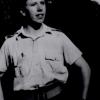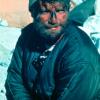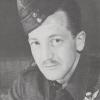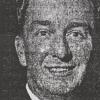OLD EDWARDIAN’S WAR SERVICE
Late Captain A.E. Roberts.
Captain A.E. Roberts, M.B.E., 6th Airborne Division, second son of Mr. and Mrs. W. Edwin Roberts, of Bitterne, who has been killed in action, as already reported in the ‘Echo’, was at King Edward VI Grammar School, Southampton, from 1931 – 1939, where he was school librarian, and held in great esteem by the school and his masters. He enacted many roles in the school’s dramatic society and was in the group of masters and boys who assisted the miners in South Wales at the time of the great depression.
In the last year of his old school in Havelock Road he was Deputy Head Boy, and he was the first head boy at the new King Edward VI School in Hill Lane. He was one of two boys chosen to represent the school at the last Duke of York’s camp.
PRIVATE TO CAPTAIN.
He was admitted to King Alfred’s School, Winchester, where he planned to continue his studies, but two days before war was declared he volunteered for the Army and joined the R.A.O.C. as a Private. In April 1940, he took his commission, and in 1942 he attained the rank of Captain. He voluntarily transferred to the Airborne Forces Experimental Establishment, where he helped to contribute new methods and improvements in the safety of airborne equipment. He again transferred, this time to the 6th Airborne Division, in order to participate in any operational tasks the Division would be called upon to do. He was amongst those of the Division who were rushed back to the Continent when von Runsdedt made his thrust into the Ardennes, and finally was in the assault over the Rhine.
M.B.E. AWARD.
He was recently awarded the M.B.E. (Military Division) for “hazardous work carried out bravely during the invasion of Normandy”.
His younger brother, Pilot Officer Eric S. Roberts, R.A.F. was killed in action in Egypt in September, 1940.
Source: Anna Roberts
Read More




Latest Comments
There are currently no comments for this content.
Add Comment
In order to add comments you must be registered with ParaData.
If you are currently a ParaData member please login.
If you are not currently a ParaData member but wish to get involved please register.